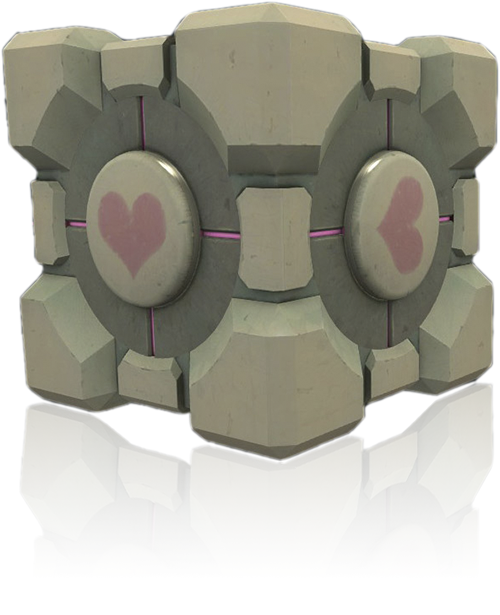因為在念熱物理所以就手癢的跑去再看了一次 Asimov 寫的《The Last Question》;一個在問「有沒有讓 entropy 減少的辦法」的問題的故事,也是傳說中時間線最長的短文 :-P。
全文在此。以下有雷。
因為在念熱物理所以就手癢的跑去再看了一次 Asimov 寫的《The Last Question》;一個在問「有沒有讓 entropy 減少的辦法」的問題的故事,也是傳說中時間線最長的短文 :-P。
全文在此。以下有雷。
 … and the Weight Companion Cube, isn’t.
… and the Weight Companion Cube, isn’t.
(圖片來源: Greg’s Blog)
之前在跟 SKC 同學與 st 惋惜說 Companion Cube plush 賣完了,結果沒隔幾天 The Valve Store 竟然就重新上架了!立刻用 VISA 金融卡把東西訂下來(怕賣光),結果訂單卻因為 Billing Address & Shipping Address 不一樣國家被退訂… 立刻再訂一次,幸好有過。
(咦,我好像沒說過我在玩 Portal?)
(你覺得我會玩 FPS 很奇怪嗎?)
倒是原本做一半的 papercraft Companion Cube … 還是繼續用滿滿的愛做完(飄)。只是快用完了因為好難做orz
科幻作家 Arthur C. Clarke 昨日在斯里蘭卡過世,享年 90 歲。他寫了許多重要的科幻作品,還是首先提出同步衛星與太空電梯概念的科學家。
NASA 的 Statement 是對他的一生最好的描繪之一(節錄如下):
Although his personal odyssey here on Earth is now over, his vision lives on through his writing; he will be sorely missed.”
翻譯:
他個人在地球上的漂泊就此結束,但他的遠景會在紙上永存;我們將非常懷念他。
我對 Clarke 的書閱讀不多;有時間的話應該再看看幾本。
Update: Clarke 在 90 歲生日時錄給大家的談話。